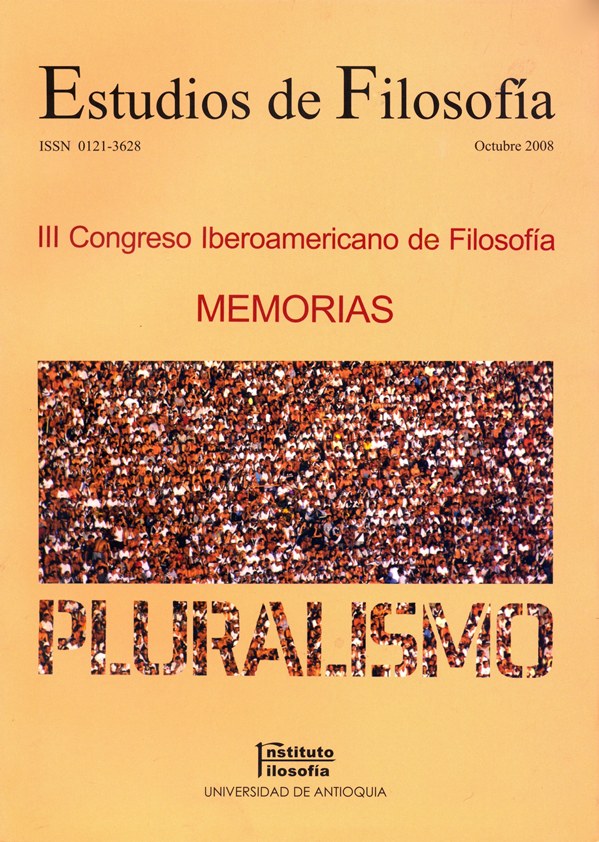Forms of self-knowledge in the Platonic Republic
DOI:
https://doi.org/10.17533/udea.ef.12956Keywords:
Plato, Republic, philosophy, humanitiesAbstract
Recent research on the Republic has brought to the table an issue that until now had not been considered as part of the variety of those examined in that dialogue. Obviously I am referring to the issue of self-knowledge. And this has occurred in two complementary directions. On the one hand, based on the consideration of a widely neglected passage of the allegory of the cave, and, on the other, insofar as the relationship of the rational soul with the Idea of Good is seen as the possibility of a solution to the Charmides aporias on reflective knowledge. In any case, one of the conclusions of these studies is that the subject of knowledge or ignorance of oneself alluded to in the allegory of the cave does not constitute an isolated reason and is not left aside, but precisely that knowledge reaches its full realization in the knowledge of the Idea of Good. [Fragment]
Downloads
Downloads
Published
How to Cite
Issue
Section
Categories
License
Copyright (c) 2008 Raúl Gutiérrez

This work is licensed under a Creative Commons Attribution-NonCommercial-ShareAlike 4.0 International License.
Authors who publish with this journal agree to the following terms:
1. The Author retains copyright in the Work, where the term "Work" shall include all digital objects that may result in subsequent electronic publication or distribution.
2. Upon acceptance of the Work, the author shall grant to the Publisher the right of first publication of the Work.
3. The Author shall grant to the Publisher a nonexclusive perpetual right and license to publish, archive, and make accessible the Work in whole or in part in all forms of media now or hereafter known under a Creative Commons Attribution-NoCommercia-ShareAlike (CC BY-NC-SA 4.0), or its equivalent, which, for the avoidance of doubt, allows others to copy, distribute, and transmit the Work under the following conditions: (a) Attribution: Other users must attribute the Work in the manner specified by the author as indicated on the journal Web site;(b) Noncommercial: Other users (including Publisher) may not use this Work for commercial purposes;
4. The Author is able to enter into separate, additional contractual arrangements for the nonexclusive distribution of the journal's published version of the Work (e.g., post it to an institutional repository or publish it in a book), as long as there is provided in the document an acknowledgement of its initial publication in this journal;
5. Authors are permitted, and Estudios de Filosofía promotes, to post online the preprint manuscript of the Work in institutional repositories or on their Websites prior to and during the submission process, as it can lead to productive exchanges, as well as earlier and greater citation of published work (see The Effect of Open Access). Any such posting made before acceptance and publication of the Work is expected be updated upon publication to include a reference to the Estudios de Filosofía's assigned URL to the Article and its final published version in Estudios de Filosofía.















